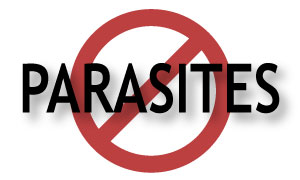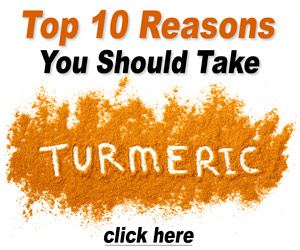
Is Turmeric an Effective Herbal Remedy for Leishmaniasis?
This parasitic disease is transmitted via sand fly bites. There are many species of the one-celled parasites that are transmitted by the female sand fly. (ix.72-73)
Animals are typically affected more than humans are, but there are epidemics of the disease in countries such as Afghanistan, Sudan, and India and periodic outbreaks in the United States (in Oklahoma and Texas). (ix.72-73)
It is believed that up to 1% of the U.S. military have been infected with this disease in the ongoing wars in the Middle East. Symptoms can range from skin lesions to severe systemic (visceral) infections. (ix.72-73)
How Can Turmeric Help?
A clinical study conducted in Iraq tested the effectiveness of a topical herbal remedy on 150 patients with leishmaniasis skin lesions. The ointment contained aloe juice, turmeric, fat, and Euphorbia milii. (ix.74)
The majority of patients were cured within about 4 months. Results of the turmeric-containing ointment were similar to those treated with conventional injections of Glucantime®. (ix.74)
Caution: Curcumin May Increase Infection in Low Doses
Curcumin's effects on systemic leishmaniasis appear to be dose-dependent: (ix.75-76)
- High doses of the turmeric compound produce free radicals and calcium imbalances that are toxic to the parasite.
- Conversely, low doses of curcumin can increase the amount of parasites in organs (the parasite load).
How do researchers think this happens?
Could Curcumin Make Systemic Leishmaniasis More Infectious?
Studies suggest that the turmeric compound could help the parasites survive our natural defenses against them. In animal research, results show that curcumin potently activates an anti-inflammatory type of protein called PPAR-γ. It suppresses the body's initial acute inflammatory immune response. This allows the parasites to escape the immune system's cells that are sent out to eliminate them. (ix.77)
Free radicals generated from the acute immune response also work to kill parasites. At low doses, curcumin acts as an antioxidant and quenches these beneficial free radicals. In long term animal studies, chronic doses of curcumin at levels less than that found in oral supplements increased parasite loads in organs. (ix.73)
The authors of this study suggest that in places where infection is common, such as India, turmeric and curcumin may counteract treatment — whether taken as oral supplements or eaten as a spice. Turmeric is heavily used in Indian diet. On average people in India eat 38-190 mg/day of the spice. This equates to between 0.38-9.5 mg/day of curcumin (since turmeric contains 1-5% curcuminoids). In rural areas the people consume a much as 3.8 g/day of the herb. (ix.73)
Other researchers reach a different conclusion. They say the fact that turmeric (and its curcumin compounds) is so heavily consumed in areas of endemic infection suggests the herbal effects may actually help people survive with chronic infection. The acute inflammatory response needed to kill some parasites (such as those that cause malaria and certain liver infections) results in serious tissue damage and lower survival in those infected. (ix.78)
Beneficial Effects of Curcumin in Skin Infections
Animal studies suggest turmeric's curcumin compounds could help people with leishmaniasis skin infections:
- Curcuminoids delivered by injections blocked development of lesions. (ix.79)
- Different forms of curcumin can significantly reduce lesion size. In infected animals, a single injection of modified curcumin reduced lesion size by 65.5% after only 45 days. (ix.80)
- Further experiments by other researchers using the same dosage showed that 2 and 3 doses at most was all it took to completely heal lesions. The turmeric compound's derivative performed better than a drug commonly used to treat these infections. (ix.81-82)
Research suggests that curcumin's epigenetic activity works on parasite DNA too. It binds to parasite DNA similar to how the drug pentamidine does, interrupting the parasite's normal activity. (ix.83)
The Bottom Line?
Although research is limited, it seems that turmeric and curcumin taken orally might be detrimental in treating systemic leishmaniasis infections. Conversely, it appears that topical or skin injections of turmeric and curcumin may help prevent or resolve lesions from skin infections caused by the parasite. (ix.73, 79-80)
Join the 1000s of People Who Are Discovering the Benefits of Turmeric.

Healthceuticals® Turmeric Curcumin Complex
100% Certified
Organic ingredients
- Organic Turmeric Extract - standardized to 95% curcuminoids.
- Organic Whole Turmeric - provides full spectrum antioxidant, anti-inflammatory turmeric benefits, including turmerones and numerous vitamins, minerals, and phytonutrients
- Organic Black Pepper Extract - standardized to 95% piperine; dramatically enhances bioavailablity.
- Organic Phospholipids - markedly improve absorption.
- Organic Ginger - works synergistically with turmeric to provide more powerful benefits.
- Absolutely FREE of potentially harmful additives and fillers such as magnesium stearate.






Comments (0)